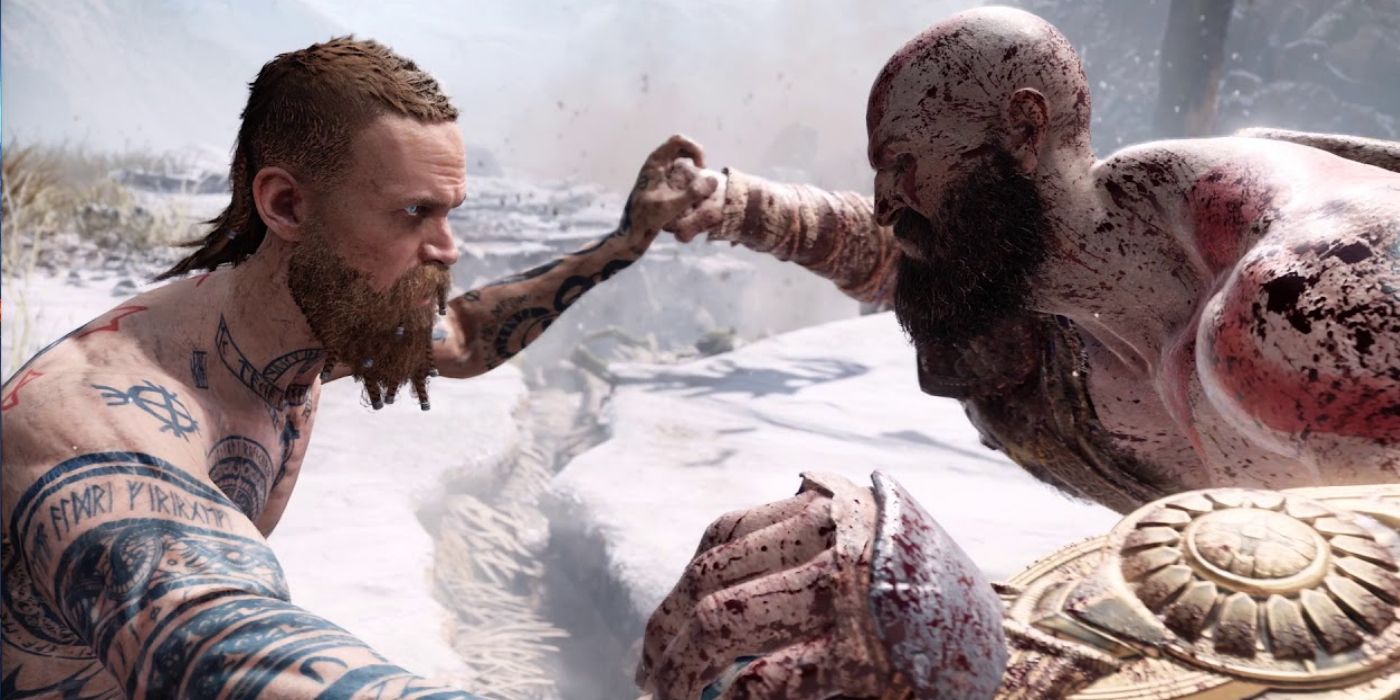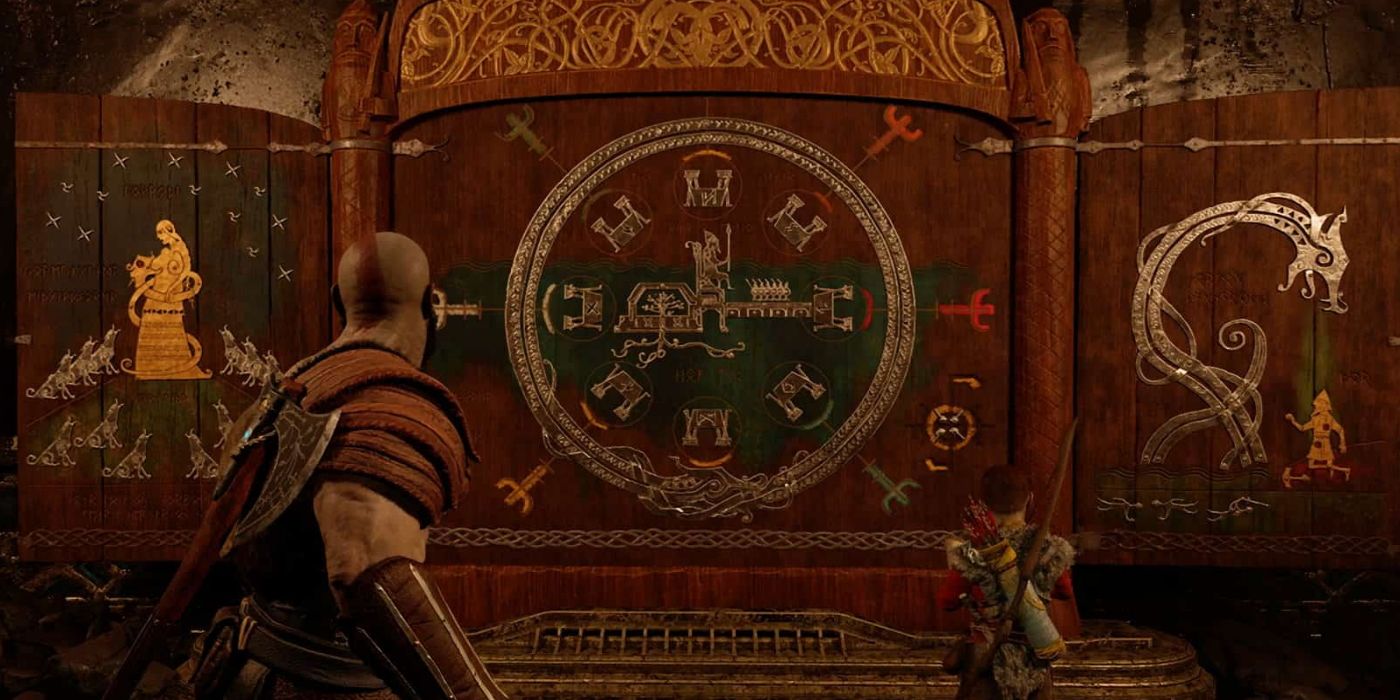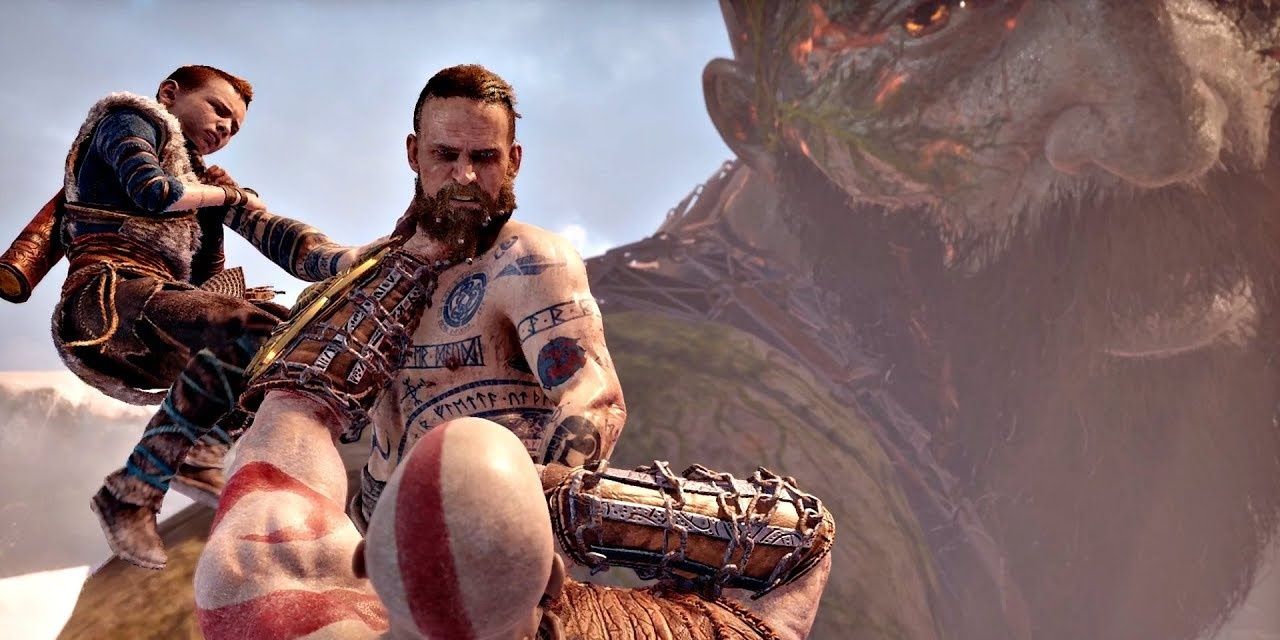Not much has been revealed about God of War's upcoming sequel. The game's reveal trailer only promised that "Ragnarok is coming," something already heavily implied at the end of the series' 2018 soft reboot.
Most of the discussion surrounding the next God of War has been to do with the story, particularly the question of whether or not Atreus will kill Kratos as some fans believe the last game implied. One of the other major questions that has yet to be answered, however, is how God of War will deal with its boss fights in relation to Ragnarok. As a mythological basis for the next game, Ragnarok raises some major questions about how directly Kratos and Atreus will be involved in the deaths of the Norse gods.
Boss Fights and Prophecy In God Of War
God of War has been about killing gods since the very first game, and many fans will be expecting to tear their way through the Norse pantheon during Ragnarok, taking down famous mythological figures like Odin and Thor just as they did the Greek gods of the original trilogy. There's a problem, however. The Norse gods already have their fates spelled out for them, not just in the Ragnarok of Norse mythology, but in the prophecy laid out by the last God of War game.
If the player visits the Jormungandr's shrine, they will see that in the triptych's third panel there's a depiction of Thor's death. The Norse god of Thunder has two large fang wounds in his body as the Jormungandr towers over him, suggesting that God of War's Ragnarok will adhere relatively close to the events as depicted in the real-world myths. In Norse mythology, Thor lands a mortal wound on the World Serpent before succumbing to the creature's poison.
In fact, almost all of the Norse gods have the specifics of their deaths spelled out during Ragnarok. The question is where Kratos and Atreus will fit into this in order for the next game to have the same kind of classic boss fights as the original trilogy.
The Restrictions of Ragnarok
The last game took some liberties with its depiction of events from mythology, but there were still clear connections. Kratos may have been responsible for Baldur's death in the end, for example, but just as Baldur died from Loki's mistletoe spear in the myths, Atreus' mistletoe arrows removed his invulnerability in the game's story. In cases like Thor's death, it's harder to see how God of War will be able to frame the events of Ragnarok in a way that fulfills the prophecy while involving the player.
The same can be said of Odin's death. In both Norse mythology and the prophecy as described in the game, Odin will be devoured by the wolf Fenrir during Ragnarok. Unless God of War's version of Ragnarok has boss fights that largely involve pushing the Norse gods toward the mouths of various giant animals, the game will have to face a big challenge in balancing the prophecy with the need for the player character to be involved in myth-based events likely to unfold.
A lot has changed in God of War since the original trilogy's hack-and-slash days. It could be that the next game won't focus on Kratos and Atreus being personally responsible for the demise of the Norse pantheon, but instead finding a new story with boss fights against the backdrop of the Norse apocalypse. The Ragnarok prophecy could even prove an interesting limitation, forcing the next game to avoid the same story structure and boss fight style as the original trilogy. Just how Ragnarok will play out in the next game and whether the prophecy will be fully realized remains to be seen for now.
God of War Ragnarok will launch in 2022 for PS4 and PS5.



